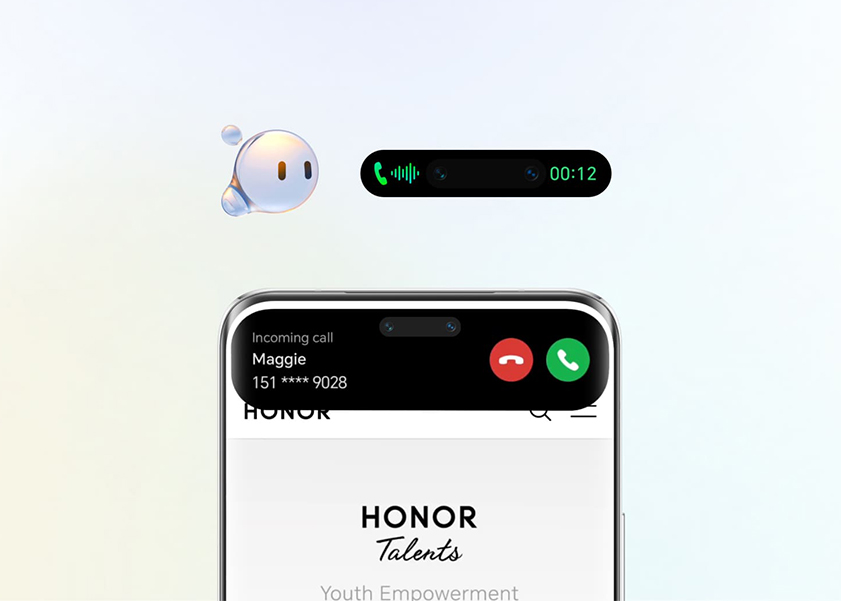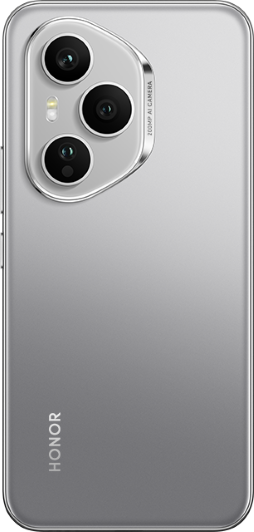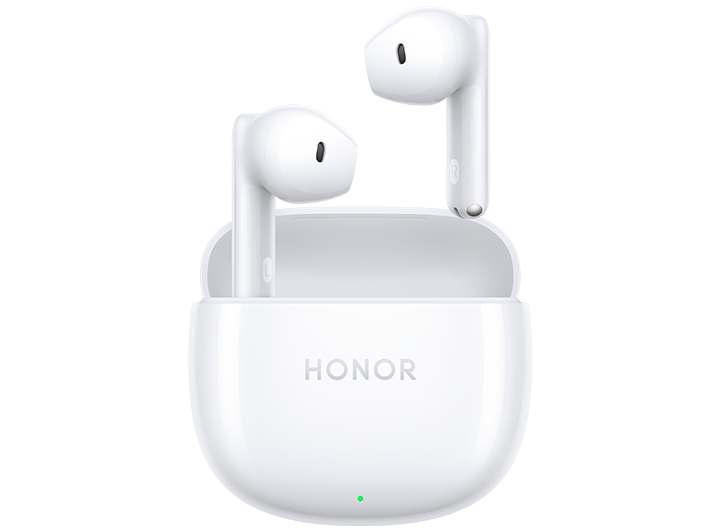TOP

我的荣耀 开启荣耀之旅
To log in to your account, you must first agree to the HONOR PLATFORM TERMS OF USE and HONOR Platform Privacy Statement. If you do not agree, you may only browse the site as a guest.

Understanding AI Voice Assistants: Everything You Need to Know
You've likely used the voice assistant on your smartphone to set alarms or play your favourite songs. Now, with the advancement of artificial intelligence, AI voice assistants have become smarter than ever. These digital helpers understand context, learn preferences, and can perform a wide array of tasks that were unimaginable just a few years ago.
But what exactly are these voice assistants on AI, and how do they function? In this guide, we'll dive into the mechanics of AI voice assistants, explore their benefits and limitations, and reveal the top performers of 2025. Read on to learn all the insights!
What Are AI Voice Assistants and How Do They Work?
AI voice assistants are sophisticated software programs that utilize artificial intelligence to interpret human speech and respond via synthesized voices. At their core, these voice AI assistants are powered by natural language processing (NLP), machine learning (ML), and speech recognition technologies, which enable them to understand, analyse, and respond to your commands. This process involves several key components:
1. Voice Recognition: The first step is for the AI phone assistant to accurately recognise your spoken words. This is achieved through advanced algorithms that can filter out background noise and focus on your voice.
2. Natural Language Understanding (NLU): Once the speech is recognised and converted into text, the AI uses NLU to decipher the meaning of the words in their specific context. This involves parsing the language for commands, questions, or other types of input.
3. Machine Learning: AI voice assistants continually learn from interactions to improve their accuracy and efficiency. They adapt to your voice, dialect, and usage patterns, enhancing their ability to predict and respond to requests over time.
4. Execution: After understanding the command, the assistant performs the requested action. This could be anything from answering a question with information fetched online, to controlling smart home devices, or setting reminders.
5. Feedback: Finally, the AI provides feedback to you, either confirming the completion of a task or asking for further clarification if the initial command was not clear enough.
Benefits and Drawbacks of AI Voice Assistants
AI voice assistants offer a range of advantages that contribute significantly to our convenience and efficiency, but they also come with their own set of challenges. Here's a closer look at the benefits and drawbacks of AI voice assistance:
Benefits
● Convenience: AI voice assistants provide hands-free operation, allowing you to perform tasks such as sending messages, setting reminders, or navigating apps without physically interacting with your devices. This is especially helpful while multitasking, such as cooking while setting reminders.
● Efficiency: By streamlining tasks such as setting reminders, managing calendars, or retrieving information, AI voice assistants can significantly reduce the time you spend on routine activities.
● Personalisation: AI voice assistants learn from individual interactions and customise responses based on your preferences and past behaviour, creating a highly personalised experience.
● Home Automation: Integrating AI voice assistants with smart home technology enables you to control lighting, temperature, security systems, and more with simple voice commands.
Drawbacks
● Privacy Concerns: AI voice assistants require access to personal data to function optimally, which raises concerns about how this data is used and stored. Users often worry about eavesdropping and the potential for data breaches.
● Dependence on Internet Connectivity: Most AI voice assistants need a stable internet connection to process commands, which can be limiting in areas with poor connectivity or during outages.
● Misinterpretations and Errors: Despite advances in technology, voice assistants can still misinterpret commands, such as accents or dialects, or just malfunction, leading to frustration or incorrect task execution.
● Limited Functionality for Complex Tasks: While AI voice assistants are excellent for routine tasks, they often struggle with complex queries or tasks that require nuanced understanding or human judgment.
What Can You Use AI Voice Assistants For?
AI voice assistants have a wide range of applications that can simplify daily tasks and boost productivity. Here's a breakdown of what they can do, using the advanced HONOR Magic6 Pro AI smartphone as an example:
● Daily Scheduling and Reminders: AI voice assistants can help manage your calendar, set reminders for appointments, and alert you to upcoming events, ensuring you never miss important dates.
● Communication: These assistants can send texts, make phone calls, and even respond to emails on your behalf, all through voice commands, making staying in touch effortless.
● Entertainment: Whether it's playing music, streaming a podcast, or starting a movie on your smart TV, voice assistants simplify entertainment access with quick voice commands.
● Smart Home Control: Voice assistants can integrate with home automation systems to control lighting, adjust thermostats, lock doors, or monitor security systems—all through spoken instructions.
● Cooking and Shopping Assistance: They can provide recipes, read out cooking instructions, add items to your shopping list, and even order groceries online.
● Real-time Information: Ask any question, and your AI assistant can pull up weather updates, news briefs, stock market trends, or sports scores instantly.
● Meeting Facilitation: They can join meetings, take notes, and set action items, helping streamline work meetings.
● Travel and Navigation: Voice assistants can assist with travel plans by checking traffic conditions, suggesting the fastest routes, and providing public transit information. They can also book taxis and provide tourist information, making them invaluable travel companions.
● Health Monitoring and Advice: Some assistants are equipped to track health metrics, provide medical advice, or remind you to take your medication.
Top 5 AI Voice Assistants 2025
Here's a look at 5 top AI voice assistants for 2025, highlighting their standout qualities and what makes them unique.
Google Assistant
Known for its deep integration with Google's ecosystem, Google Assistant offers robust search capabilities and natural language understanding. It excels in providing accurate information retrieval and seamless control of Android devices, like the foldable HONOR Magic V2, and Google Home products. The assistant is particularly praised for its ability to understand context and handle follow-up questions effectively.
What we love about it:
● Excels in natural language processing for more conversational and intuitive conversations.
● Handles context well for efficient follow-up interactions.
● Seamlessly integrates with a multitude of devices and services.
● Allows for easy automation of daily tasks through personalised commands.
● Regularly updated to leverage the latest in AI technology.
Lindy
Lindy is the ultimate customisable AI voice assistant, ideal for building a team of specialised assistants to streamline your work and personal life. It's perfect for those who want a highly personalised and efficient AI assistant without needing coding skills. Suitable for any phone with voice assistant capability.
What we love about it:
● Build custom AI assistants for specific tasks.
● Over 99% accuracy in understanding commands.
● Easy creation of voice shortcuts for automated workflows.
● Interconnected assistants that communicate for seamless operations.
● Integrates with over 3,000 tools like Google Calendar and Slack.
Alexa
As a pioneer in the field, Amazon Alexa continues to dominate in smart home integration. With thousands of supported devices and skills, Alexa excels in home automation, shopping, and user personalisation. Its routines feature allows you to automate a series of actions with a single command, making everyday tasks simpler.
What we love about it:
● Streams music, audiobooks, and podcasts.
● Answers questions and provides trivia.
● Controls smart home devices with ease.
● Facilitates online shopping and grocery ordering.
● Offers a variety of skills from guided meditations to games.
Rabbit M1
Rabbit M1 is a cutting-edge video chat device with AI capabilities, making it perfect for remote family gatherings and team meetings. It stands out for its immersive video chat features and privacy-oriented design. It's compatible with devices that support video conferencing apps.
What we love about it:
● Push-to-talk button for AI activation.
● Handles tasks like booking rides and finding recipes.
● Uses Large Action Model (LAM) for task automation.
● Rotating camera for privacy and object identification.
● Enhances remote interactions with its advanced video features.
Retell AI
Retell AI lets you design and make your own AI assistant, offering maximum flexibility for those who want a bespoke digital helper. Ideal for tech-savvy users who enjoy personalising their technology. It's suitable for any phone that can run AI development tools.
What we love about it:
● Customisable personality and voice for the assistant.
● Ability to perform tailored tasks, from ordering food to automating workflows.
● Integrates with existing smart devices and services.
● Requires some coding knowledge for full customisation.
● Provides a conversational API for realistic interactions.
Conclusion
AI voice assistants, by blending cutting-edge technology with everyday convenience, have dramatically transformed how we interact with our devices. While they come with their set of challenges, the benefits they offer cannot be overlooked. As we reviewed the capabilities and features of the best AI voice assistants in 2025, it's clear that these tools are not just a passing trend but are here to redefine how we interact with our devices. As technology advances, the future of AI voice assistants looks promising, with endless possibilities to enhance user engagement and simplify complex tasks.
FAQs
What are the types of AI voice assistants?
AI voice assistants can generally be categorized into two types: general and specialized. General voice assistants, such as Google Assistant and Alexa, are designed to perform a wide range of tasks and answer various questions across multiple domains. Specialized voice assistants, on the other hand, are tailored for specific functions or industries, such as healthcare or customer service, providing more focused support and expertise in their particular area.
What is the best AI voice assistant?
The best AI voice assistant depends on your specific needs and device ecosystem. Google Assistant is renowned for its deep integration with Android devices and vast knowledge base, making it excellent for search-related tasks. Amazon's Alexa is a top choice for smart home integration and has a vast range of skills. Ultimately, the best choice will depend on which ecosystem you're most invested in and what functionalities are most important to you.
Source: HONOR Club
SUBSCRIPTION
I agree to receive the latest offers and information on HONOR products through email or IM (e.g. WhatsApp) provided below and advertisement on third-party platforms. I understand that I can unsubscribe anytime according to Chapter 5 of HONOR Platform Privacy Statement.
CONTACT

Honor Technology (Malaysia) Sdn Bhd
(Registration No.: 202101003804)
1800-88-5645
9:00 AM - 6:00 PM
Copyright © Honor Device Co., Ltd. 2020-2025. All rights reserved.
We use cookies and similar technologies to make our website work efficiently, as well as to analyze our website traffic and for advertising purposes.
By clicking on "Accept all cookies" you allow the storage of cookies on your device. For more information, take a look at our Cookie Policy.
Functional cookies are used to improve functionality and personalization, such as when playing videos or during live chats.
Analytical cookies provide information on how this site is used. This improves the user experience. The data collected is aggregated and made anonymous.
Advertising cookies provide information about user interactions with HONOR content. This helps us better understand the effectiveness of the content of our emails and our website.


















































































